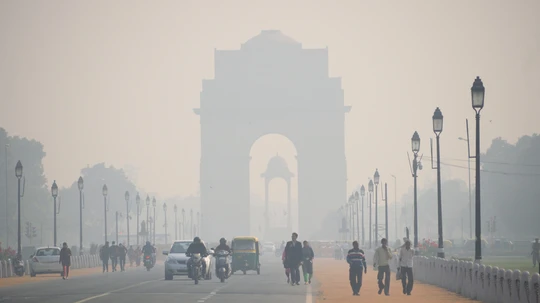While the much-needed drop in temperature has finally given the sigh of relief from rising heat, it has also led to the onset of smog season in parts of North India.
Characterised mainly by high levels of particulate matter (PM2.5 and PM10), carbon monoxide and nitrogen oxides, smog is considered as one of the most harmful environmental triggers affecting human health. Its effects also go beyond just cough and watery eyes, silently damaging multiple systems in the body. These are majorly categorized as:
Hidden strain on the heart
What is often overlooked when smog season arrives is its connection to cardiovascular diseases. Pollutants enter the bloodstream through the lungs and end up triggering oxidative stress. This ultimately raises blood pressure and hardens arteries. Long-term exposure to smog has been linked to higher incidences of heart attacks and strokes, even in cases when the individual has no prior cardiac history.
Lungs under pressure
Smog particles are also very fine in nature and penetrate deep into the lungs, leading to chronic inflammation that keeps building over time. This reduces the capacity of the lungs and increases vulnerability to asthma, bronchitis and other respiratory infections. Children and the elderly are especially at risk when it comes to this as their immune systems are less equipped to handle prolonged exposure.
Impact on immunity and brain function
Smog is not something that affects your body only externally. It also weakens your internal defenses. Studies also show that air pollution triggers inflammation in the body and suppresses immune function and makes people more prone to infections. It can also cause fatigue, poor concentration and anxiety.
Effects on skin and hair
Our skin, the largest organ of the body and our first line of defense, also bears the brunt of this pollution exposure. Fine particles clog the pores of the skin and lead to pigmentation, dullness and premature ageing. This is also called ‘pollu-ageing.’ Similarly the scalp also becomes really dry and brittle due to oxidative stress and toxin accumulation.
Ways to protect yourself:
- Monitor air quality: Use AQI-tracking apps to do so and limit outdoor activity on days when smog is high.
- Enhance your diet: Include some antioxidants like vitamin C, vitamin E, green tea and turmeric to combat free radicals.
- Create clean indoor air: Invest in air purifiers, keep windows closed during peak hours and also welcome air-purifying plants to your home like areca palm or peace lily.
- Practice skin care and look after your lungs: Double cleanse at night, use skin-protective serums and try steam inhalation or nasal saline rinses to clear pollutants.
